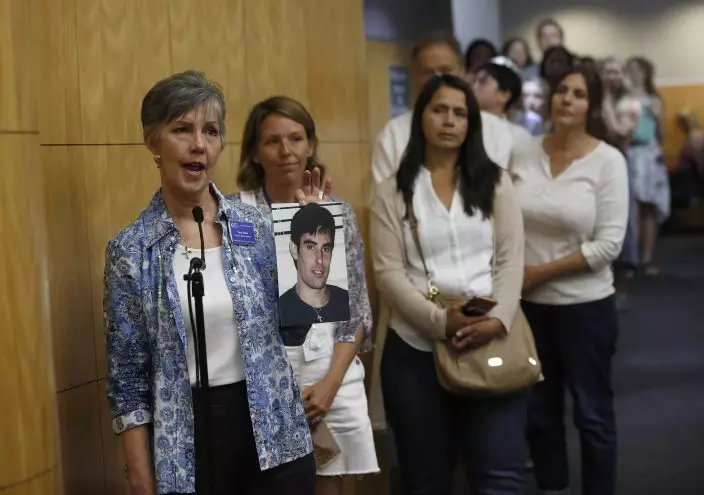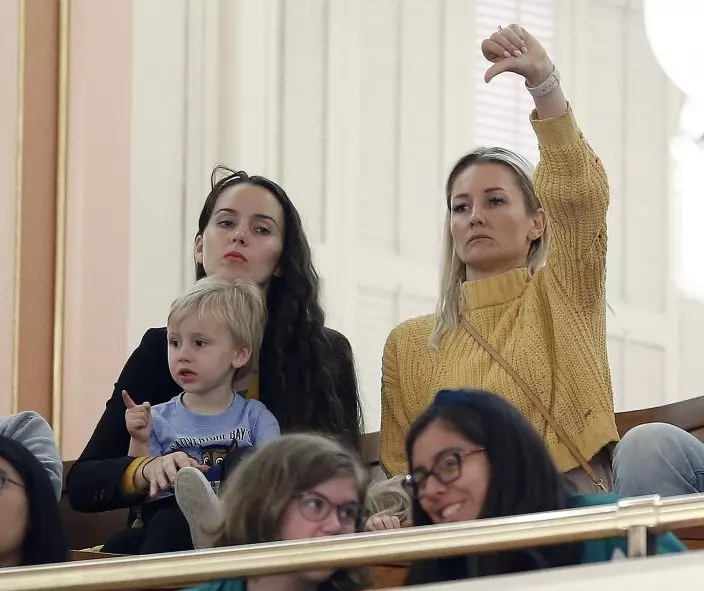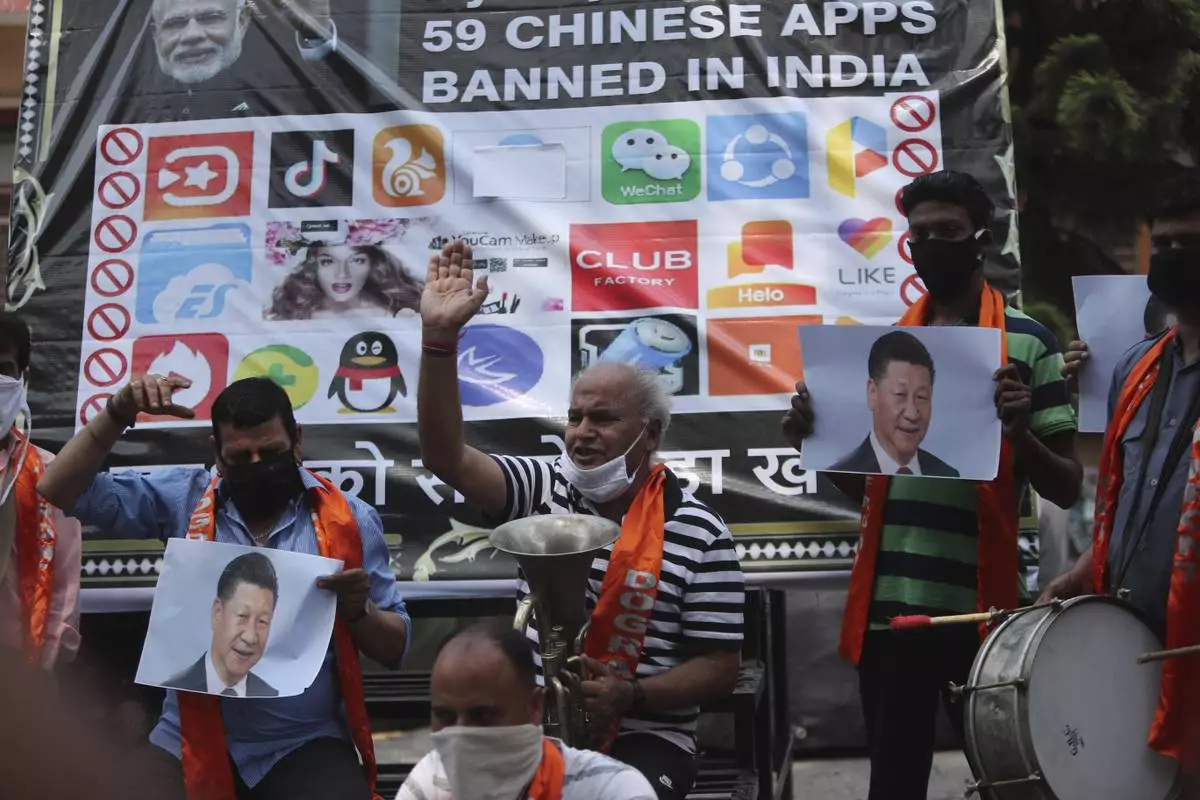Residents are getting their first chance to weigh in on changes to a California measure that would give state public health officials oversight of doctors who grant a high number of medical exemptions for vaccinations and schools with vaccination rates less than 95%.
The Assembly Health Committee's hearing is expected to draw hundreds of people against vaccines to the Capitol, as have prior hearings on the topic. Critics shouted "we will not comply" inside the Senate chambers last month as lawmakers voted on the measure.
They will likely be countered once again by dozens of white-coated medical professionals and students voicing support for the bill.

FILE -- In this April 24, 2019 file photo Terry Roark displays a photo of her son, Thomas, who she said was harmed by vaccines given to him when he was an infant in the early 1970's, as she and others express their opposition to a proposal to give state public health officials instead of local doctors the power to decide which children can skip their shots before attending school, at the Capitol, in Sacramento, Calif. A newer version of the bill, by state Sen. Richard Pan. D-Sacramento, which would require public health officials to scrutinize doctors who grant a high number of exemptions rather than review every exemption, will be will be taken up by the Assembly Health Committee, Thursday, June 20, 2019. (AP PhotoRich Pedroncelli, File)
The hearing comes just days after Sen. Richard Pan, the bill's author, announced major changes to the legislation designed to win support from Gov. Gavin Newsom. The Democratic governor had expressed concern with requiring state health officials to sign off on every exemption, as the bill had initially required.
Now, the public health department will only scrutinize doctors who grant more than five medical exemptions in a year and schools with vaccination rates of less than 95%, the threshold that officials say is needed to provide "community immunity" and prevent the spread of measles cases, which reached a 25-year high in the U.S. earlier this year. Newsom said he will sign the revised version if it reaches his desk.
The California bill is aimed at stopping some doctors from selling immunization exemptions, which supporters of the bill said has become a growing problem since the state ended non-medical exemptions in 2016.

FILE -- In this April 24, 2019 file photo Alyssa Hernandez listens as opponents to a proposal to give state public health officials instead of local doctors the power to decide which children can skip their shots before attending school, speak at the Capitol in Sacramento, Calif. Hernandez, whose son Noah, seen in photos in the background, received a liver transplant when he was six months old and cannot be vaccinated against many vaccine-preventable diseases, spoke in support of the measure. A newer version of the bill, by state Sen. Richard Pan. D-Sacramento, which would require public health officials to scrutinize doctors who grant a high number of exemptions rather than review every exemption, will be will be taken up by the Assembly Health Committee, Thursday, June 20, 2019. (AP PhotoRich Pedroncelli, File)
New immunization figures show the rate of kindergartners with permanent medical exemptions has quadrupled since the state banned personal exemptions, and more than 100 schools have medical exemption rates exceeding 10%.
Lawmakers in other states have also been considering changes to confront the nation's highest number of measles cases in decades. Maine eliminated religious and philosophical exemptions, while New York legislators ended a religious exemption. Washington state ended most exemptions for the measles vaccine, though legislators in Oregon defeated a bill that would have made it harder for families to opt out.
Among provisions in the amended California bill:

FILE -- In this May 22, 2019, file photo, an opponent of a measure to toughen the rules for vaccination exemptions gives a thumbs down as the bill's author, state Sen. Richard Pan, D-Sacramento, makes his closing statements in Sacramento, Calif. A newer version of the bill, by state Sen. Richard Pan. D-Sacramento, which would require public health officials to scrutinize doctors who grant a high number of exemptions rather than review every exemption, will be will be taken up by the Assembly Health Committee, Thursday, June 20, 2019. (AP PhotoRich Pedroncelli, File)
— Doctors would be barred from charging for filling out a medical exemption form or conducting a related medical examination. They would have to sign the forms under penalty of perjury.
— California Department of Public Health doctors or registered nurses would review exemptions issued by local medical providers who issue five or more a year, or at schools with high exemption rates.
— The state public health officer, who is a doctor, could revoke any that don't meet national guidelines.
— Parents could appeal to an independent panel of doctors.
— In addition to immunization guidelines issued by federal medical authorities, officials could consider families' medical histories in allowing exemptions.
Supporters said the bill would permit exemptions for the less than 1% of students who should avoid vaccinations because they have a severe allergic reaction or impaired immunity from a liver problem, HIV virus, chemotherapy or other conditions.










